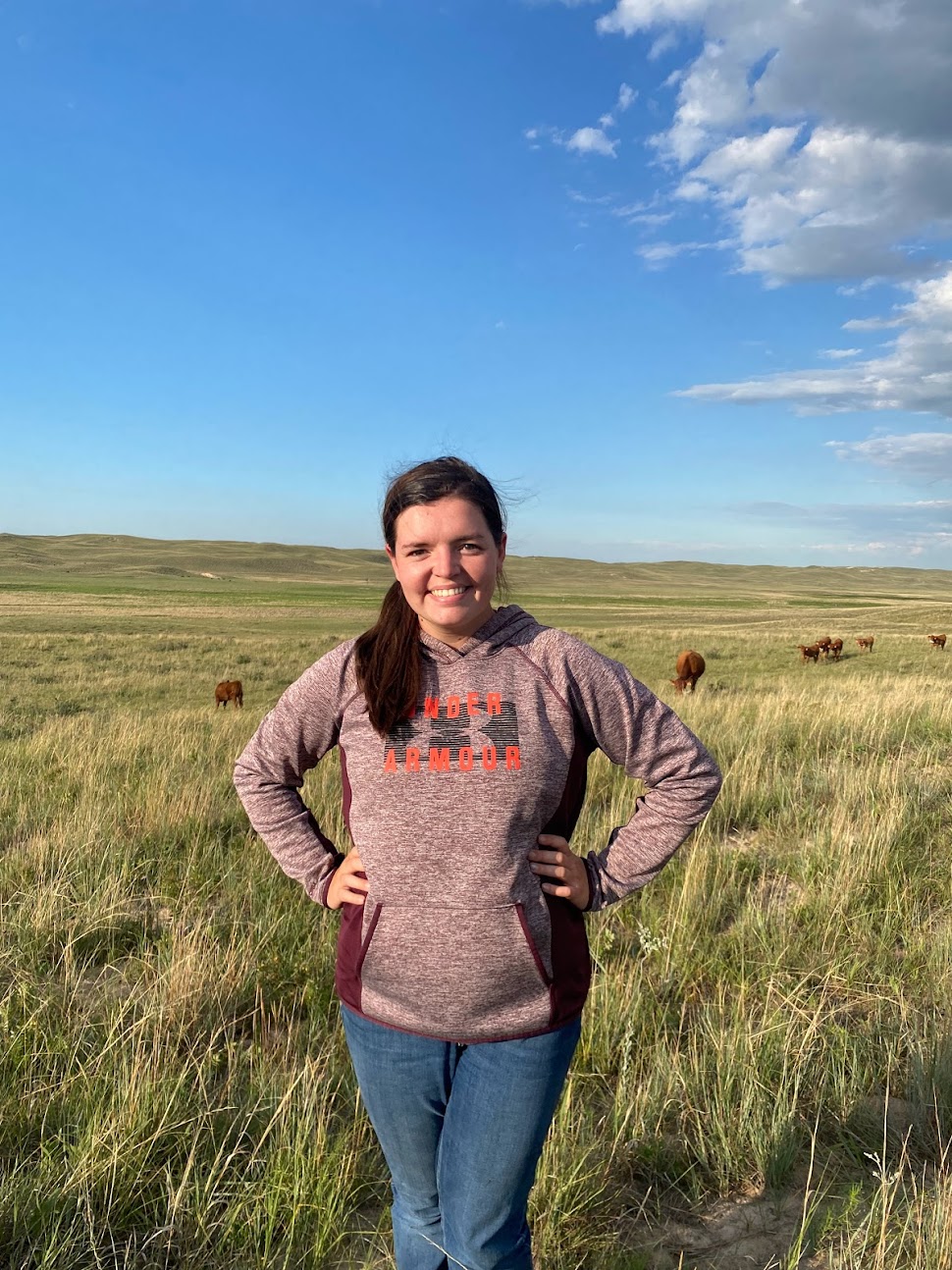
Kaitlyn Dozler, a Masters candidate in Natural Resource Sciences with a specialization in Applied ecology, will present a seminar on April 24 from noon to 1 pm in 901 South Hardin Hall.
Topic: Virtual fencing's impact on the beef industry and natural resource conservation.
Abstract: The Nebraska sandhills are a unique ecological landscape with various plant and wildlife species. The sandhills are also the home to Nebraska’s booming beef industry, housing the top 3 beef counties in the U.S. States like Nebraska face the challenge of managing both the needs of agriculturalists and the state's natural resources. Innovative precision livestock management (PLM) technologies can aid cattle producers in better-applying grazing management for key grazing land resource objectives.1 Virtual fencing (VF) is a relatively new PLM tool that utilizes individual animal collars and a global positioning system (GPS) to create an invisible barrier for cattle by emitting sensory cues via sound and electric stimuli, thus giving livestock managers the ability to manipulate animal movements remotely.2,3 This technology provides opportunities for grazing managers to create flexible grazing management boundaries that require less time, labor, and physical fencing while potentially improving grazing practices that benefit cattle utilization efficiency and targeted natural resource conservation. My study has two main focuses. The first is on the potential impact new PLM technologies, such as virtual fences, have on cattle welfare. By examining cattle heart rates, we can measure acute stress and show ranchers virtual fencing is an ethical option to provide new flexibility to their ranching operations. The second focus is to examine how agriculturalists can utilize virtual fences to create heterogeneity in the landscape and protect critical habitat areas such as game and songbird nesting areas.
These seminars will be live streamed at https://go.unl.edu/viewsnrseminars and then posted on the SNR Seminar's webpage.